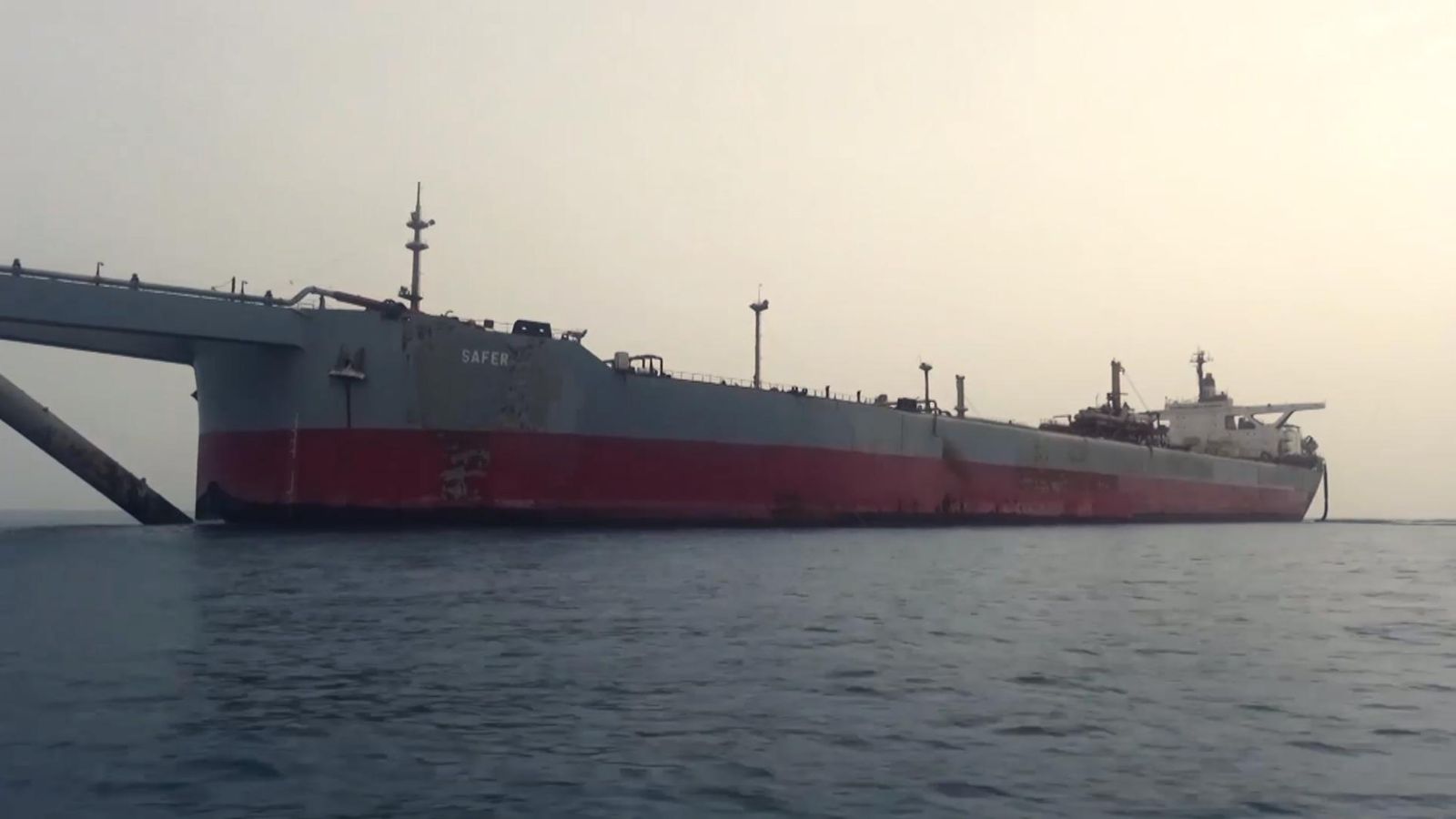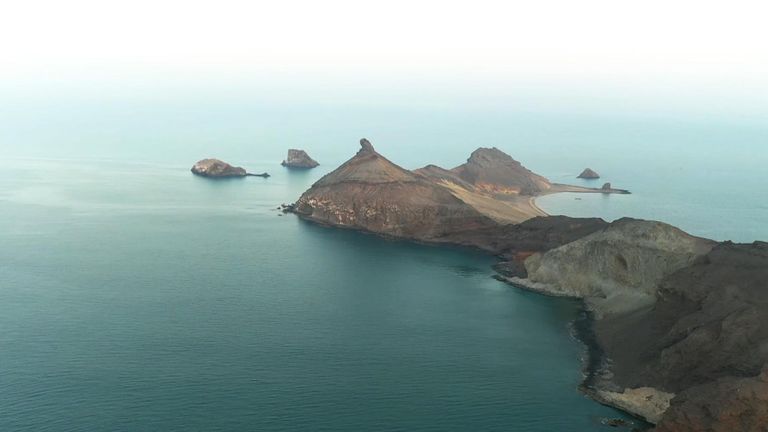A super tanker anchored off the country’s coast and containing more than a million barrels of oil is “likely to sink or explode at any moment”, unleashing an environmental and humanitarian disaster, the United Nations humanitarian coordinator for Yemen has told Sky News.
The FSO Safer was all but abandoned in 2015 as Yemen descended into civil war and now the ship is starting to fall apart.
Humanitarian coordinator David Gressly said: “We don’t want the Red Sea to become the Black Sea, that’s what’s going to happen.
“It’s an ancient vessel, a 1976 super tanker from that era, and therefore is not only old but unmaintained and likely to sink or explode at any moment.
“Those who know the vessel, including the captain that used to command the vessel, tell me that it’s a certainty.
“It’s not a question of ‘if’, it is only a question of ‘when’, so it is important that we act as quickly as we can or it will eventually spill one million barrels of oil into the Red Sea.
“We really have no way out except to solve the problem.”
According to recent modelling by the Nature Sustainability scientific journal, an oil spill would take two to three weeks to spread all the way up to Saudi Arabia, across to Eritrea and down to Djibouti.
Within days it would close Yemen’s key Red Sea ports of Hudayah and Salif, abruptly ending food aid relied upon by nearly six million people.
Most fuel imports would stop too, which matters because eight million people in Yemen rely on fuel-powered pumps or trucks to get their fresh water.
Further up the coast of Yemen an estimated two million people rely on desalination plants for their water, but these plants would also be contaminated by the oil spill and have to close.
The environmental effects would be profound, destroying or damaging healthy coral reefs and protected coastal mangrove forests.
Nature Sustainability predicts that within three weeks an unabated oil spill could kill almost all of Yemen’s Red Sea fishing stock, upending the lives of millions of people living in coastal communities who rely on the ocean for their food and livelihoods.
Dr Hisham Nagi, professor of environmental science at Yemen’s Sana’a University, told Sky News: “The oil tanker is unfortunately located near a very, very healthy coral reef and clean habitat, and it has a lot of species of marine organisms.
“Biodiversity is high in that area, so if the oil spill finds its way to the water column, so many marine sensitive habitats are going to be damaged, damaged severely because of that.”
Read more
The victims of the forgotten war that shows no sign of stopping
Donated UN food aid for Yemen’s most needy sold in markets
The United Nations is so desperate to stop the oil spilling that it has just crowdfunded the purchase of a rescue tanker to go on a salvage operation.
But despite the potential $20bn (£16bn) cost of a clean-up, the UN is still $34m (£28m) short of the $130m (£106m) in funding it needs to complete the job.
The US, UK, German and Dutch governments have all contributed alongside generous private donors, but it is not enough.
Mr Gressly said: “There are many complexities but for most member states, the difficulty – and it’s ironic – is there is plenty of money available in different member state budgets for a response to an emergency.
“I know if there was an oil spill, there would be tens of millions of dollars pouring in to solve this spill.
“But nobody seems to have budget lines for avoiding a catastrophe.”


